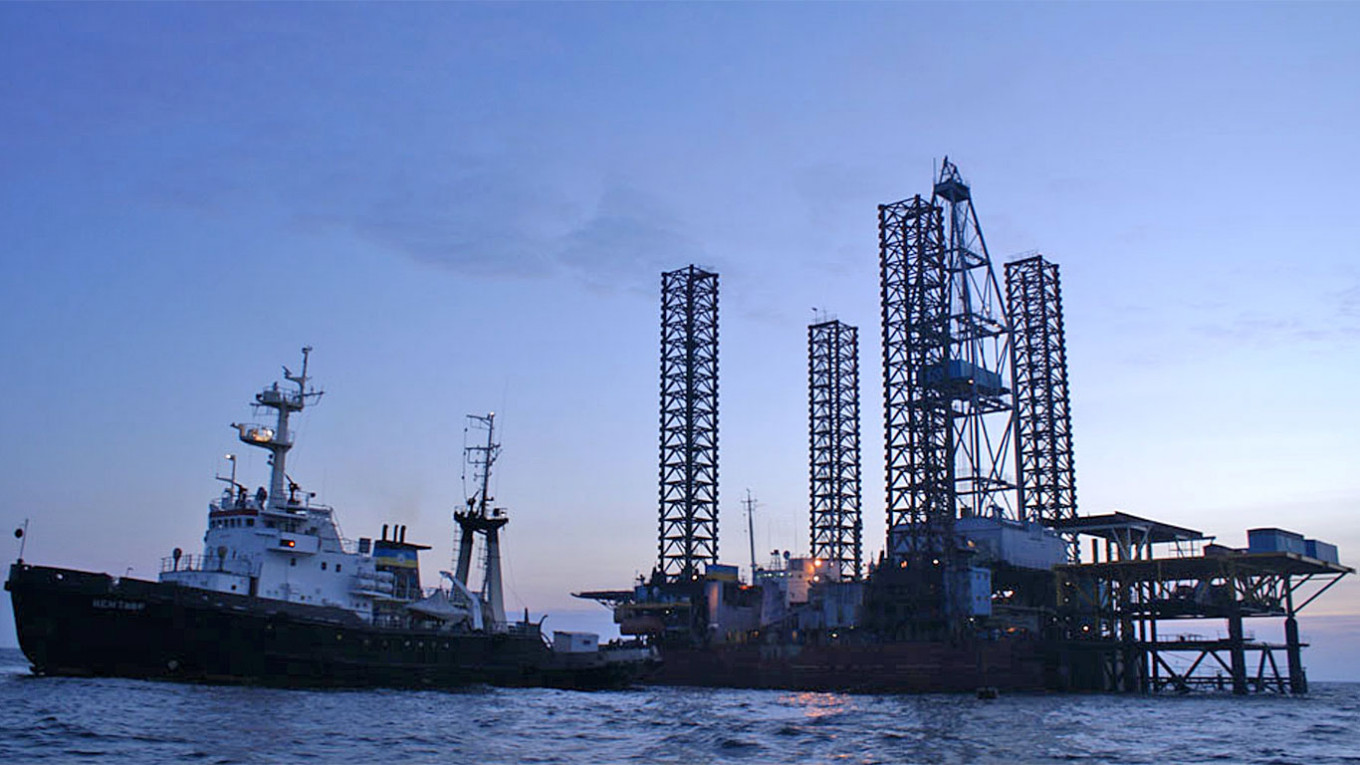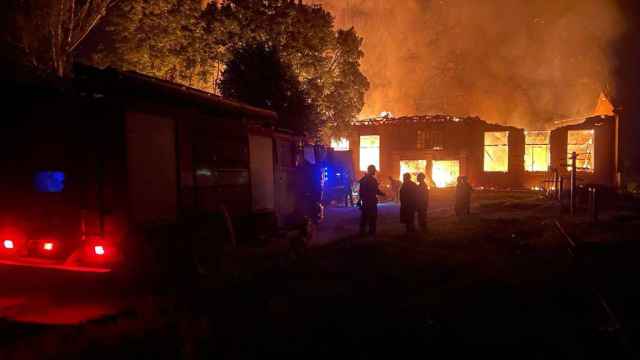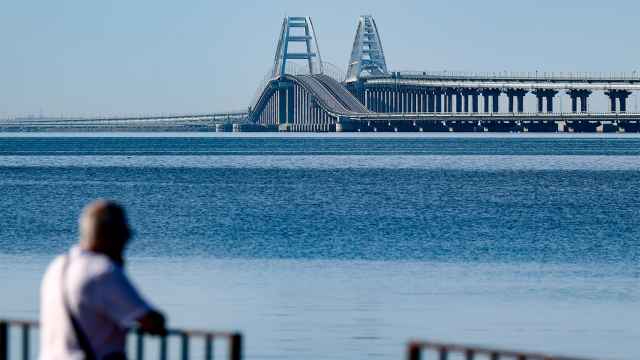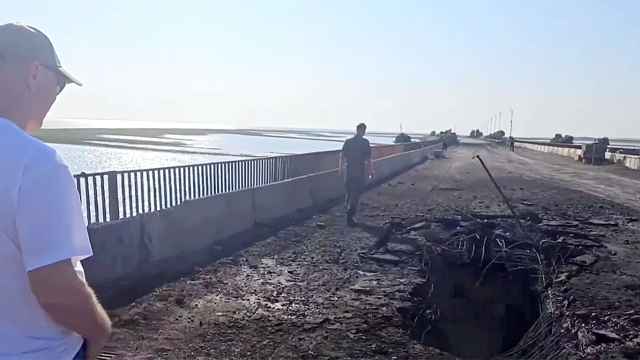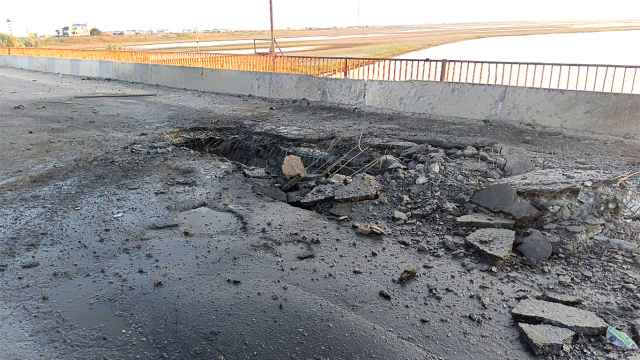The fire on a Russian gas production platform in the Black Sea was so large two days after it was hit by a Ukrainian missile that it showed up as a bright white speck on pictures taken from a NASA satellite that monitors forest fires.
About 70 kilometers from Russian-annexed Crimea, the drilling rig was struck at 8:37 a.m. on Monday, according to Russian officials.
One of three gas production platforms targeted simultaneously by Ukraine, the attack resulted in serious injuries for three oil workers and seven more were declared missing.
Crimean Senator Olga Kovitidi said that the pipelines from the platforms were being drained to minimize the risk of fire and that production at the Odessa gas field was suspended.
The successful Ukrainian strike has again exposed Russia’s vulnerabilities in the Black Sea after a series of high-profile naval reversals that include the April sinking of the Moskva, Russia’s Black Sea flagship.
The damage to the production platforms – the first time offshore energy infrastructure has been targeted during the fighting in Ukraine – also raised doubts about the Kremlin’s ability to continue oil and gas production in the area.
“So long as part of the [Black Sea] coast remains in Ukrainian hands, the sea remains a contested space for Russia,” said naval expert Alessio Patalano at King’s College London.
The rigs were a legitimate target because they were being used by the Russian military, according to Sergiy Bratchuk from Odessa's regional military administration.
"On those towers, Russia had organized small garrisons and stored equipment for air defense, radar warfare and reconnaissance," Bratchuk told an online briefing Tuesday.
Despite the absence of a Ukrainian fleet, Kyiv’s military has used its arsenal of missiles – some manufactured in the West – to put pressure on Russia’s Navy as it attempts to continue with operations near the Ukrainian coast.
Fighting has been particularly fierce around Snake Island in the Danube delta, with satellite photographs released Wednesday appearing to show new damage to buildings.
Ukraine said earlier this week that it had carried out strikes on the Russia-controlled island, which is about 70 kilometers west from the damaged gas production platforms.
In addition to the Moskva, which sank after it was targeted in a missile attack by the Ukrainian armed forces, at least 9 other Russian vessels have been destroyed in the Black Sea since the beginning of the war, according to Oryx, an intelligence blog that tracks Russia's military losses using open-source analysis.
Russian officials condemned Monday’s attack.
“This is a terrorist act,” said Georgy Muradov, the deputy chairman of the Crimean Council of Ministers, state-run news agency RIA Novosti reported.
The damaged gas production platforms are owned by Crimean-based energy company Chernomorneftogaz that extracts a total of about 1 billion cubic meters of gas a year, according to Igor Yushkov, an analyst at Russia’s National Energy Security Fund.
But experts said that there is unlikely to be any consequences in terms of the Crimean peninsula’s energy supply.
"The extraction in Crimea by illegally appropriated Chernomorneftegaz was declining in the last few years [anyway]," said Maria Shagina, an international sanctions and energy expert at the International Institute for Strategic Studies.
The three damaged offshore platforms, known as the Boyko towers after a former Ukrainian energy minister, were seized from Ukraine by Russia in 2014 following Moscow’s annexation of Crimea. They were then floated from the Odessa shelf gas field into Crimean waters.
“Russia has again been surprised,” said Dmitry Gorenburg, a researcher on Russian security at the Virginia-based CNA think tank, about the attacks.
“[They] will know they can’t operate in the region as they did before.”
A Message from The Moscow Times:
Dear readers,
We are facing unprecedented challenges. Russia's Prosecutor General's Office has designated The Moscow Times as an "undesirable" organization, criminalizing our work and putting our staff at risk of prosecution. This follows our earlier unjust labeling as a "foreign agent."
These actions are direct attempts to silence independent journalism in Russia. The authorities claim our work "discredits the decisions of the Russian leadership." We see things differently: we strive to provide accurate, unbiased reporting on Russia.
We, the journalists of The Moscow Times, refuse to be silenced. But to continue our work, we need your help.
Your support, no matter how small, makes a world of difference. If you can, please support us monthly starting from just $2. It's quick to set up, and every contribution makes a significant impact.
By supporting The Moscow Times, you're defending open, independent journalism in the face of repression. Thank you for standing with us.
Remind me later.



